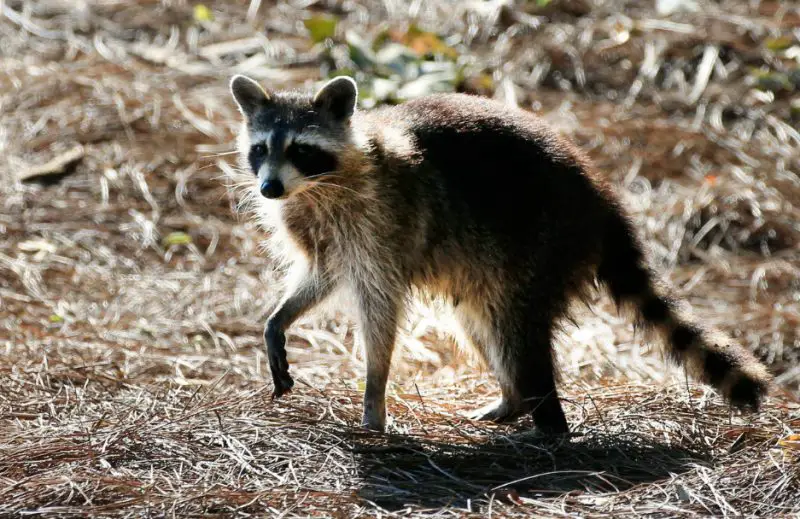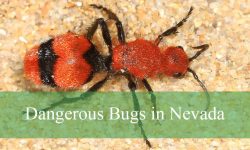If you’ve ever thought about owning a raccoon as a pet in New York, you’re not alone. Their adorable faces, curious nature, and intelligence often tempt people to imagine them as cuddly companions. However, behind those mischievous eyes lies a wild animal with instincts that make them far from domesticated pets. Before you get any ideas about bringing one home, it’s crucial to understand the legal realities, potential risks, and ethical concerns.
In this detailed guide, we’ll explore whether it’s legal to own a raccoon in New York, why the law forbids it, what penalties exist, and what safer alternatives you have if you love these fascinating creatures. Let’s uncover the truth.
What the Law Says About Owning a Raccoon in New York

State Law and NYSDEC Regulations
In New York, raccoons are legally considered wildlife and are strictly regulated by the New York State Department of Environmental Conservation (NYSDEC). According to state law, it is illegal to possess, import, or keep a raccoon as a pet without a valid license. More importantly, licenses are not issued for pet purposes. The only exceptions involve wildlife rehabilitation, educational facilities, or research institutions.
This means no matter how cute or tame a raccoon may seem, you cannot legally keep one as a personal pet in New York. The NYSDEC’s clear position is that raccoons belong in the wild, not in private homes.
Exotic Animal and Wildlife Possession Laws
New York’s Environmental Conservation Law states:
“No person shall possess or traffic in raccoons… except under a license or permit issued by the department.”
This includes captive-bred raccoons, which are still classified as wildlife. Even if someone breeds raccoons in another state and sells them as “pets,” that does not override New York’s restrictions. The law treats all raccoons as wild animals, regardless of origin.
City-Level Rules in New York City
If you live in New York City, the restrictions are even tighter. Under Article 161.01(b) of the NYC Health Code, raccoons are explicitly listed among animals illegal to keep as pets. NYC Health Department guidelines also prohibit keeping any species of Procyonidae (the raccoon family).
In short, both state and city laws make owning a raccoon as a pet illegal. There are no loopholes, and no pet store or breeder can legally sell one within New York State.
Why Raccoons Are Regulated
Health and Disease Risks
Raccoons are known carriers of several dangerous diseases, including rabies and raccoon roundworm (Baylisascaris procyonis). Even raccoons that appear healthy can transmit these diseases to humans or domestic pets. This is one of the main reasons the state prohibits their ownership. The risk of spreading disease to humans and other animals is simply too high.
Behavior and Safety Concerns
Despite their playful demeanor, raccoons are wild animals with unpredictable behavior. They can become aggressive, especially during mating season or when feeling threatened. Their intelligence also makes them difficult to contain — they can open doors, latches, and containers with ease. Many cases of “pet” raccoons have ended with injuries to their owners or destruction of property.
Unlike dogs or cats, raccoons are not domesticated. Their instincts to dig, bite, climb, and forage are deeply ingrained, making them unsuitable as household pets.
Environmental and Ethical Reasons
Keeping raccoons as pets can harm the local ecosystem. Removing them from the wild disrupts their natural roles, while releasing a captive raccoon can spread diseases or introduce behavioral problems to wild populations. Ethically, wildlife experts argue that raccoons suffer in captivity because they cannot express natural behaviors in confined environments.
Penalties for Owning a Raccoon Illegally
Legal Consequences
Anyone caught owning a raccoon without proper authorization in New York can face serious penalties. The NYSDEC has the authority to confiscate the animal, issue fines, and even pursue criminal charges depending on the severity of the violation. The raccoon may be euthanized if it cannot be safely rehomed or poses a health threat.
While specific fines vary by case, the emotional cost of losing the animal — often after months of care — is significant. The state enforces these laws strictly to discourage illegal wildlife possession.
Confiscation and Euthanasia
If authorities discover an illegally owned raccoon, they may seize it immediately. Sadly, most confiscated raccoons cannot be released into the wild because of disease risks or dependency on humans. As a result, they are often euthanized — a tragic outcome that underscores why these laws exist.
Relocating With a Pet Raccoon
Even if you obtained a raccoon legally in another state, bringing it into New York violates state law. There are no exemptions for out-of-state pet raccoons. Upon discovery, the same penalties apply.
Exceptions and Legal Permits
Who Can Legally Keep Raccoons in New York?
Only certain individuals or organizations can lawfully possess raccoons in New York, and even then, under strict regulation. These include:
- Licensed wildlife rehabilitators caring for injured or orphaned raccoons temporarily.
- Educational or research institutions with specific NYSDEC-approved permits.
- Wildlife exhibitors (like zoos or sanctuaries) holding valid exhibitor licenses.
Even in these cases, the facilities must meet strict housing, care, and safety standards. The general public cannot obtain these permits for pet purposes.
No Permits for Pet Ownership
The NYSDEC explicitly states that licenses are not issued for pet wildlife. Owning a raccoon as a personal pet, even if you consider it “rescued” or “tame,” does not qualify for an exemption.
The Reality of Keeping a Raccoon as a Pet
The Allure of a Cute Wild Animal
It’s easy to see why some people want a raccoon — they’re intelligent, curious, and can even form social bonds with humans. Viral videos of “tame” raccoons online make them seem like playful pets. However, what’s rarely shown are the years of effort, training, damage, and stress that come with keeping a wild animal indoors.
Real Challenges of Raccoon Ownership
- Destructive Behavior: Raccoons chew through walls, furniture, and wires. They open cabinets, steal food, and make a mess.
- Aggression: Even hand-raised raccoons can bite or scratch unpredictably.
- Longevity: They live up to 20 years in captivity, demanding long-term commitment.
- Veterinary Issues: Many vets refuse to treat raccoons due to legal or disease concerns.
- Legal Risks: Owning one can result in fines, confiscation, or even legal action.
Those who’ve owned raccoons often warn others not to repeat their mistakes. Many recount heartbreak after authorities seized and euthanized their beloved pets.
Ethical Implications
From an ethical standpoint, raccoons are best left in the wild. Captivity denies them freedom and often leads to stress-related behaviors. Experts urge wildlife enthusiasts to appreciate raccoons from afar or help them through legal conservation programs rather than ownership.
What to Do If You Already Have a Raccoon
Contact the Authorities
If you already have a raccoon in your possession, contact the NYSDEC or a licensed wildlife rehabilitator immediately. They can advise on legal steps to surrender the animal safely. It’s better to act proactively than to face enforcement action later.
Do Not Release It Yourself
Never release a captive raccoon into the wild. This is illegal in New York and can cause serious ecological problems or disease spread. Always involve professionals who are trained in handling wildlife transitions.
Explore Humane Alternatives
If you care about raccoons, consider volunteering with wildlife rescue organizations or supporting raccoon conservation projects. These options allow you to help raccoons legally and ethically.
Safe and Legal Ways to Appreciate Raccoons
While owning a raccoon is illegal, you can still enjoy and support these animals in lawful ways:
- Volunteer at wildlife rehabilitation centers. Many facilities welcome help with feeding, cleaning, or educating the public.
- Support conservation efforts. Donations or advocacy can make a big difference for local wildlife programs.
- Observe raccoons in nature. Watch them responsibly from a distance in parks or rural areas.
- Adopt legal pets. If you want a clever, affectionate animal, consider cats, ferrets, or dogs — all legal in New York.
These options let you connect with animals without breaking the law or endangering wildlife.
Summary and Key Takeaways
The Legal Bottom Line
- Owning a raccoon as a pet in New York is illegal.
- No permits are issued for pet raccoons.
- Only licensed rehabilitators, educators, or exhibitors may possess raccoons.
- Violators risk fines, confiscation, and euthanasia of the animal.
Why the Law Exists
New York’s restrictions protect both humans and animals. Raccoons can spread diseases, harm property, and suffer in captivity. By prohibiting ownership, the state ensures public health, wildlife welfare, and ecosystem balance.
The Real Truth
Raccoons are incredible creatures — intelligent, adaptive, and full of personality. But they are wild by nature, not pets. The laws reflect this truth, protecting raccoons from unsuitable human environments and owners from legal or safety troubles. If you love these animals, the most responsible choice is to admire and protect them in their natural habitat.
FAQs About Owning a Raccoon in New York
Can I keep a baby raccoon if I find one abandoned?
No. Keeping a baby raccoon without a license is illegal. Contact a licensed wildlife rehabilitator instead. Keeping it at home, even temporarily, can lead to fines and health risks.
What if I move to New York with a pet raccoon from another state?
You cannot legally bring your raccoon into New York. The animal may be confiscated, and you could face penalties. It’s best to find a licensed sanctuary in your current state before relocating.
Are there any raccoon-friendly sanctuaries in New York?
Yes, but only licensed facilities may house raccoons. You can volunteer at wildlife centers to help care for them without owning one.
Which states allow pet raccoons?
Some states, like Florida, Texas, and Michigan, allow pet raccoons under certain permits. However, always verify local regulations before considering ownership. New York remains one of the strictest states against it.
What should I do if a raccoon lives near my home?
Do not feed or approach it. Secure your trash cans, remove outdoor pet food, and contact a wildlife professional if it becomes a nuisance. Coexistence is safer and more humane than intervention.
Final Thoughts
Owning a raccoon in New York might sound appealing, but it’s not legal or practical. The laws exist for good reasons: to protect public safety, animal welfare, and the natural balance of wildlife populations. Raccoons thrive best in their natural environments, not confined to a home.
If you truly admire raccoons, support them responsibly through wildlife education, rehabilitation programs, or safe observation in nature. Respecting these laws ensures a safer, kinder relationship between humans and the wild creatures we share the world with.






